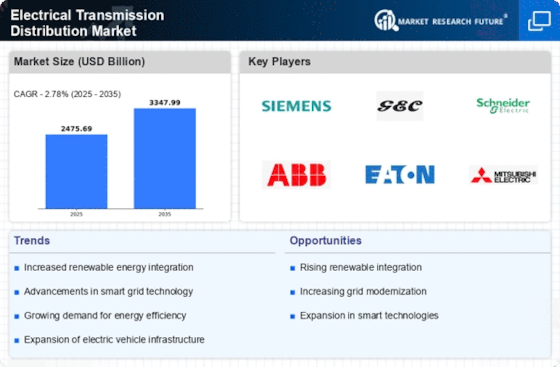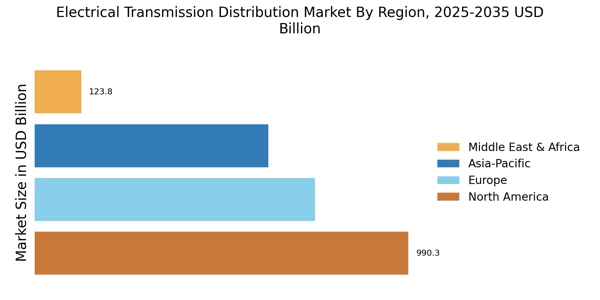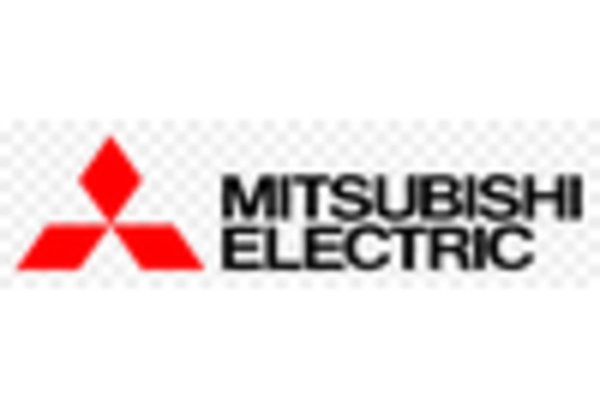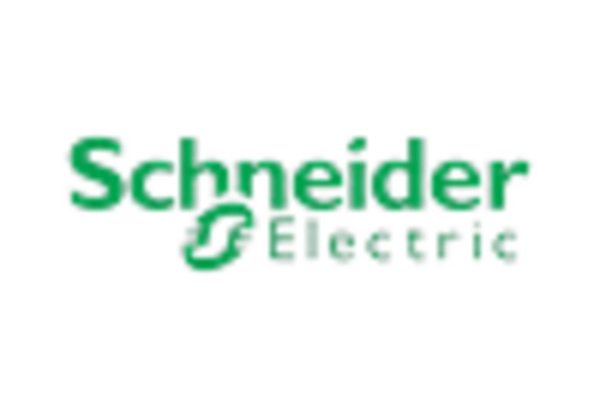Rising Energy Demand
The rising energy demand is a significant driver for the Electrical Transmission Distribution Market. As populations grow and economies develop, the need for reliable electricity supply increases. Projections indicate that global electricity consumption could rise by over 25% by 2030. This surge in demand necessitates the expansion and enhancement of transmission and distribution networks to ensure that energy can be delivered efficiently. Consequently, utilities are compelled to invest in the Electrical Transmission Distribution Market to meet these demands, leading to increased infrastructure development and modernization efforts.
Environmental Regulations
Environmental regulations are increasingly influencing the Electrical Transmission Distribution Market. Governments worldwide are implementing stricter policies aimed at reducing carbon emissions and promoting sustainable energy practices. These regulations often require utilities to invest in cleaner technologies and improve the efficiency of their transmission and distribution systems. For instance, mandates for reducing greenhouse gas emissions are pushing utilities to adopt more renewable energy sources, which in turn necessitates upgrades to existing infrastructure. As a result, the Electrical Transmission Distribution Market is likely to see a shift towards more environmentally friendly practices, driving innovation and investment.
Infrastructure Investment
The Electrical Transmission Distribution Market is currently experiencing a surge in infrastructure investment. Governments and private entities are allocating substantial funds to upgrade aging transmission and distribution networks. This investment is crucial for enhancing reliability and efficiency in power delivery. For instance, in recent years, the United States has seen a commitment of over 100 billion dollars towards modernizing its electrical grid. Such investments not only improve service quality but also facilitate the integration of renewable energy sources. As a result, the Electrical Transmission Distribution Market is poised for growth, driven by the need for robust infrastructure that can support increasing energy demands.
Technological Advancements
Technological advancements play a pivotal role in shaping the Electrical Transmission Distribution Market. Innovations such as advanced metering infrastructure, smart grid technologies, and energy storage solutions are transforming how electricity is transmitted and distributed. These technologies enhance operational efficiency and reduce losses in the system. For example, the implementation of smart meters has been shown to decrease energy theft and improve demand response capabilities. As these technologies continue to evolve, they are likely to drive further investments in the Electrical Transmission Distribution Market, fostering a more resilient and efficient energy landscape.
Decentralization of Energy Production
The decentralization of energy production is reshaping the Electrical Transmission Distribution Market. With the rise of distributed energy resources, such as solar panels and wind turbines, the traditional centralized model of electricity generation is evolving. This shift requires significant changes in the transmission and distribution networks to accommodate localized energy generation. Utilities are now focusing on enhancing grid flexibility and resilience to manage these distributed resources effectively. As a result, the Electrical Transmission Distribution Market is witnessing increased investments in technologies that support decentralized energy systems, fostering a more adaptive and responsive energy infrastructure.


















